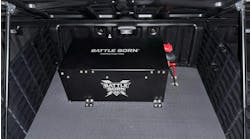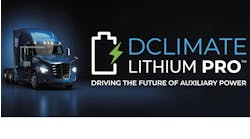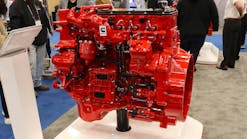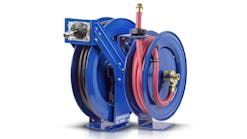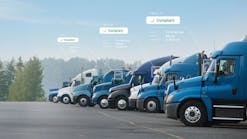National Tank Truck Carriers “vehemently disagrees” with the Federal Highway Administration’s assertion that fleet operators are “increasingly embracing EVs as viable alternatives to conventional diesel-powered vehicles,” according to comments NTTC filed last week in response to FHWA’s request for information (RFI) on medium- and heavy-duty electric charging technologies and infrastructure needs.
“America’s tank truck industry is implementing clean technologies to increase the efficiency and cleanliness of its fleets, but NTTC members counter the false narrative that truck electrification is embraced by our industry. It is not a viable technology for our use at this time,” wrote Will Lusk, NTTC director of education and government relations, in a letter submitted just before the agency’s Nov. 12 deadline.
“Simply, the high risks and costs of electric Class 8 tractor equipment pose a serious threat to the businesses required to comply with regulations as proposed by federal and state activity.”
FHWA’s RFI sought input in four areas to support adoption of medium- and heavy-duty (MHD) battery-electric vehicles, including unique EV charger and station needs; vehicle charging patterns; EV charger technology and standardization; and workforce, supply chain, and manufacturing to support charging of Class 4-8 EV batteries. “The goal is to inform appropriate future federal government activities to support the development and deployment of EV chargers to support the anticipated needs of MHD EV original equipment manufacturers, fleet operators, drivers, charging station operators, and electric utilities,” the agency stated.
FHWA had received nine public comments as of Wednesday, all providing thoughts on the viability of electric trucks, issues with establishing critical charging infrastructure, and ways to move the industry forward.
NTTC’s response focuses on the challenges tank truck fleets face in the race to deploy battery-electric vehicles, including the cost barriers covered in the Roland Berger study commissioned by the Clean Freight Coalition, which found electrifying the entire U.S. commercial trucking fleet could cost nearly $1 trillion. NTTC also specifically addressed five issues of interest to FHA and the Joint Office of Energy and Transportation that were raised in the RFI, including association leaders’ thoughts on the EV market, distance requirements between charging stations, and delivery-point restrictions.
Additionally, the association pointed out tank truck carriers often are among the first responders to natural-disaster sites, and electric-vehicle adoption could hinder their efforts to provide life-saving relief services.
“It is appropriate to see America’s tank truck industry as the first commercial response to disasters, providing critical fuels and water to a local population recovering from a recent emergency, often before an area’s power is fully restored,” NTTC wrote. “Tank truck arrivals to fresh disaster areas are not only beacons of hope, but also conveyances whose cargo saves lives.
“NTTC is concerned that MHD EV power stations would not be able to sustain the tank truck industry’s ability to provide rapid, critical relief until power is restored to a disaster area, which could take weeks in the event of a destructive storm. To guarantee the tank truck industry’s ability to use MHD EV power units to respond to a devastating hurricane [assuming the aforementioned electric vehicle weight, cost, charging network, driver shortage, and “intrinsically safe” barriers were all overcome], NTTC urges FHWA to consider implementing charging technologies with high resilience to extreme weather and prolonged outages, guaranteeing operability despite potentially wide swathes of power loss to a surrounding area. Ironically and counterproductively, diesel backup generators for charging stations may be appropriate solutions to resolve this concern.
“NTTC believes without reservation that tanker trucks’ unhindered ability to deliver relief supplies to power-loss areas is a matter of maintaining national security.”
In conclusion, “NTTC supports and envisions a zero-emission future, but is fully opposed to the administration’s aggressive and unreasonable efforts promoting EV technologies over other zero- or low-emission fuel options. Current EV technologies are prohibitive to our segment of the trucking industry for safety and financial concerns, which informs our pessimistic MHD EV implementation outlook.”
The full letter also is available on NTTC’s website.
